In Conversation with Clare Flynn, Author of “The Star of Ceylon”
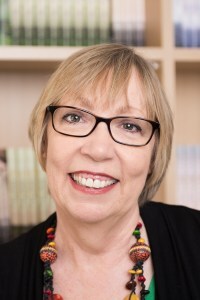 Meet Clare Flynn, award-winning historical novelist
Meet Clare Flynn, award-winning historical novelistI love reading books set in distant countries that I’m unlikely to visit – whether the action takes place in the present day or back in time. Even better when those books have been written by authors who have spent time in those countries for added authenticity and a stronger sense of place. So I was eager to read my avid traveller friend Clare Flynn’s latest historical novel, The Star of Ceylon – which, as you’ll guess from its name, is set in the past, as are all 19 of her historical novels. (Ceylon is the old name for modern Sri Lanka.)
Debbie: Clare, welcome back to my blog, and thank you for answering all my questions about your latest historical novel.
Set in colonial Ceylon when the British empire was at its height and women’s rights and options were limited, The Star of Ceylon spells out clearly the social injustices in both Britain and Ceylon under patriarchal rule. The central characters, Stella Polegate and Norton Baxter, are repelled by these societies’ attitudes, despite having been raised in a system that glorified patriarchy and colonial suppression. How typical is this disdain among their contemporaries? Would what seems to us their more modern attitudes to empire and women have made them outliers?
Clare: Great question!
To deal with Stella first, she was living at the height of the women’s suffrage movement, so her battle against the patriarchy was not unusual at the time – although by no means universal. Some women were among the fiercest critics of the movement – establishing The Women’s National Anti-Suffrage League.
Indeed, it has always seemed to me a great irony that one of its founders was Gertrude Bell – who studied at Oxford, explored the Middle East on a camel, was instrumental in the creation of what became Iraq, was the only woman invited by Churchill to attend the 1921 Cairo Conference, and was the founder of the Baghdad Museum (heavily looted in the Iraq War when US troops failed to protect it).
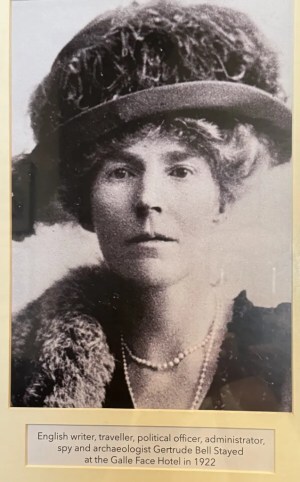 Gertrude Bell
Gertrude BellI suspect her opposition to women getting the vote was based more on a belief that emancipation wasn’t necessary as women like her proved. There were many other distinguished women academics in the Edwardian era – all high achievers but all, like Stella and Bell, denied degrees. I wrote this guest post on this subject for Lorna Fergusson – and since then keep discovering other brilliant, gifted women, denied a platform by the patriarchy.
As for Norton, yes, I believe he was unusual for his time. Most Britons – and certainly most colonial civil servants – would have taken the hegemony of the British Empire for granted. There were exceptions, and one notable one was my inspiration for Norton – Leonard Woolf. His career was in Ceylon – based first in Jaffna, then in Kandy and finally down in the Southern Province in Hambantota. His autobiography, Growing, covers the seven years he spent there. Like Norton, he loved the job but questioned what was behind it. On his first long home leave, he couldn’t face returning and devoting the rest of his life to supporting the empire. He’d fallen in love with Virginia and went into publishing instead, and the couple founded The Hogarth Press.
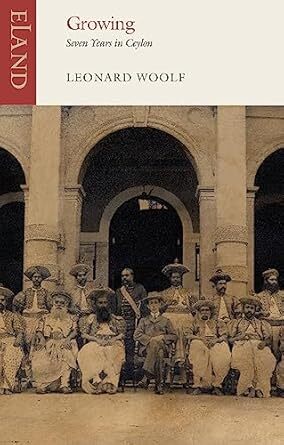 The sequel to “Sowing”, his childhood memoir
The sequel to “Sowing”, his childhood memoir
Debbie: I really enjoyed Woolf’s memoir of his earlier years, Sowing. I’ll have to add Growing to me to-read list!
You spell out dramatically many of what to 21st-century readers must seem shameful features of colonial rule. But what, if any, positive improvements and advantages did imperial powers bring to Sri Lanka?
Clare: It was the British who introduced the tea trade – after a first failed attempt with coffee.
Ceylon rapidly became a byword for the best tea in the world, and it was, and still is, a major source of export revenue – today worth $1.3 billion in foreign exchange to Sri Lanka.
As is often the case in former British colonies, the British built railways – or, more accurately, designed and funded them – while the actual construction was done by local workers. The port of Colombo grew dramatically under British rule and became the gateway to Southeast Asia for Europe, Africa and others. Since then, it has expanded further and remains a significant strategic shipping hub and container port. They also brought the English language with them – still used in administrative matters and as a bridge language between the two official languages, Sinhala and Tamil.
It’s also worth noting that prior to British rule, Ceylon was occupied by the Portuguese and then the Dutch. Neither did much to develop the country. The Portuguese stuck to the coast, focussing on the spice trade and the conversion of the population to Catholicism. The Dutch also concentrated on the coastline but built up the administration and increased trade through the Dutch East Indies Company.
Debbie: You conducted extensive research to enable you to create a vivid and convincing portrait of colonial life. What kind of research did you do? I think you made a special trip there?
Clare: Yes, I visited the country last year – having been before in the 1990s. I visited tea plantations and places that were relics of the empire, staying in colonial-era hotels and absorbing the atmosphere. I did extensive reading too – this post on my blog details all the methods I used.
Debbie: I really appreciated Sathnam Sanghera’s detailed study of the impact of Empire on Britain, Empireland: How Imperialism Has Shaped Modern Britain, and I am looking forward to reading the sequel, Empireworld: How British Imperialism Has Shaped the World. Which books on British Imperial rule did you find the most enlightening and why? Please feel free to include fiction as well as non-fiction.
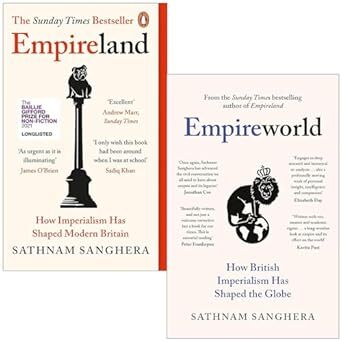 Compelling reading with a 21st-century perspective on the British Empire
Compelling reading with a 21st-century perspective on the British Empire
Clare: I highly recommend Leonard Woolf’s Growing. As well as being a mine of information, it’s a terrific read.
Rather than basing my research on current studies, I prefer to read contemporary accounts so I can see it from the perspective of the kinds of people I’m writing about. I read a dreadful book by Sir Richard Burton – the chap who (wrongly) claimed to have discovered the source of the Nile. He was typical of his times and unshakeable belief in the empire: a blustering, game-hunting, indefatigable imperialist, secure in his conviction of the superiority of the white man.
Another invaluable contemporary source was a gazette of Ceylon in 1906, which detailed the minutiae of the administrative structure of the colony and the people who ran it.
I’m about to do a short course with Oxford University on Britain and its Empire next month – too late for this book, but the British Empire is often the background to my books – particularly the Penang series and Kurinji Flowers. I’ll definitely follow your recommendation and get a copy of Sathnam Sanghera’s Empireland.
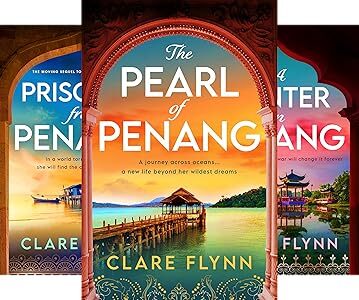 The first three of Clare’s four-book series set in Penang
The first three of Clare’s four-book series set in PenangDebbie: Another important theme in the novel is the inequalities in women’s education back in the UK – while the education of men of a certain class was completely geared to providing administrators of Empire. If women had had equal rights in education, and the vote, while the British Empire was in full swing, would the Empire have turned out any differently?
Clare: What a fascinating question! Oh, Debbie, you’ve sent me down the rabbit hole again. I’ve just found a paper from the LSE entitled “Strengthening the Representation of Women in Diplomacy” which states women ambassadors are still only 20 percent of the total. So, I doubt it would have made much difference as there wouldn’t have been enough of them. Two world wars were the major factor in the end of empire – WW1 sounding the death knell then in WW2, Britain’s humiliation in the Fall of Singapore and the horrendous accumulation of war debt, as well as the rise of independence movements led by Gandhi in India and others elsewhere, making it inevitable and almost immediate.
Debbie: You’ve written many novels set in the early twentieth century. Why does this era so fascinate you, and what can we learn from it today?
Clare: Yes, while most of my books are in the twentieth Century, I’ve set six books – The Green Ribbons, The Gamekeeper’s Wife, the Hearts of Glass trilogy and The Star of Ceylon – between the turn of the century and the early 1920s. I find it such a rich period because it was the zenith of the empire. Going into WW1, the empire was at its greatest size and biggest source of wealth.
The words “the sun never sets on the British Empire” were absolutely true as around twenty percent of the earth was pink on the atlas.
It was a period of high energy and hope, with a flowering of the arts, of ideas, of confidence, reflected in architecture – a walk around central London including Whitehall and Theatreland provides ample evidence of that. The battle for women’s suffrage was at its peak and is always a great inspiration for fiction. The fusty constraints of the Victorian era were being thrown off and there was a tremendous sense of optimism. The world was shrinking because of telecommunications, railways, the internal combustion engine and the beginnings of aircraft.
Of course, as we know – and they didn’t – in the summer of 1914 they were about to be plunged into the horrors of the First World War. That long, hot, glorious summer is extremely poignant, with the images it conjures up of picnics, punting, beautiful floaty dresses, enormous hats, and most of all, of young smartly dressed men bursting with joie de vivre – many of them soon to be dead or disfigured.
What can we learn from it today? Only that we can never know what’s just around the corner. Back then, Britain was the global superpower – richer and more powerful than the United States.
Maybe there’s a message here for the USA – that nothing lasts forever.
Debbie: That’s a heartening thought. Now, as a historical novelist, to what extent are you driven by a desire to entertain and how much are you motivated by the potential of fiction to change modern society?
Clare: My motivation is to entertain. The story always comes first. I want readers to believe in my characters and to be drawn into the story. I don’t think any single book can change society and I don’t aspire to. I try to make people think though – and introduce them to periods of history they may not have been aware of – such as the Malayan Emergency, the Ceylon pearl trade or the WW1 Shell Crisis.
Debbie: You’ve written several trilogies that started out as standalone novels – but on reaching “The End”, you were compelled to continue the story. Will the same happen with The Star of Ceylon? (I’m keen to hear more of Winnie’s story – and of how a certain person is faring in Egypt. No plot spoilers here!)
Clare: Don’t worry – no plot spoilers as I haven’t a clue what happens to them either!
I do feel compelled to finish the story, and I’m discussing a sequel with the publishers. Meanwhile, I’m having a break from Stella and Norton and have just finished writing a completely different book set in Australia during WW2 and follows on from another of my series. That’s all I’m saying!
Debbie: Many novels have been written about colonial India, but you’ve chosen to focus on Ceylon for this story. Why?
Clare: My second novel, Kurinji Flowers is set in colonial India. I chose Ceylon for this book as it’s rarely written about, and I find it a beautiful and interesting country. Sadly, it’s not in the greatest economic shape following the long and bitter civil war, the effects of the global economic crisis and government corruption, so I hope in its small way my book will encourage people to visit it.
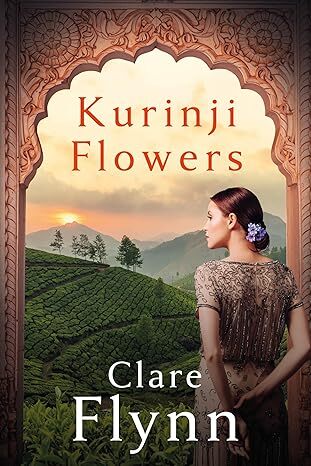 This novel is set in colonial India
This novel is set in colonial IndiaDebbie: Imperial Ceylon couldn’t be more different from twenty-first century Eastbourne where you live and write. Discuss!
Clare: You’d be surprised, Debbie! In the last century Eastbourne was an extremely popular destination for colonial civil servants to retire to – and I’m sure that included Ceylon. The town is full of big rambling Victorian and Edwardian houses. Back in the 1970s, my brother had a job at the local auction rooms and dealt with a plethora of colonial items – elephants’ feet umbrella stands, leopard and tiger skins, intricate inlaid wooden furniture and paintings of game hunts!
Debbie: Where will your travels take you next?
Clare: No book-related trips planned. I’ll probably stick to the British Isles this year. Toying with the idea of Scotland as I’ve only been to Edinburgh and would love to explore the Highlands. Who knows? There could be a book in it – but my aim is a holiday!
Debbie: What, never been to the Scottish Highlands? Clare, you are in for a treat! I’ve travelled very widely in the Highlands with my Scottish husband, so when you start planning that trip, let me know, and I’ll give you a long list of places to inspire you!
Clare: Thank you very much for having me on the blog, Debbie, and for asking such exvcellent questions!
Debbie: You’re very welcome, Clare, and best of luck with book 20 and beyond!
To find out more about Clare Flynn, visit her webiste, www.clareflynn.co.uk, where you can also download a free ebook of short historical fiction stories, A Fine Pair of Shoes , when you join her mailing list.
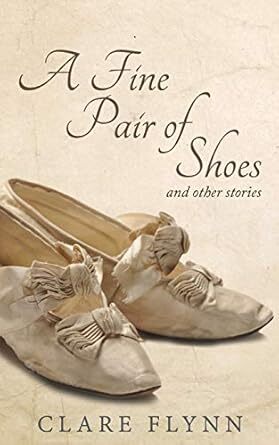 Join Clare’s mailing list to receive this free ebookIN OTHER NEWS
Join Clare’s mailing list to receive this free ebookIN OTHER NEWSI’ve just returned from a lovely stay in Norfolk, where my daughter and I stayed with another author friend, Rory Marsden, who has also been a guest on my blog here. With his own passion for history, Rory was the perfect host to show us the historic city of Norwich and its environs, from its glorious Normal cathedral and castle to tiny parish churches in the middle of flat fields, each with remarkable features. We took a steam train ride from Holt to the seaside resort of Sheringham, where we watched Red Arrows practising their amazing manoeuvres over The Wash, and a boat trip along the famous Broads.
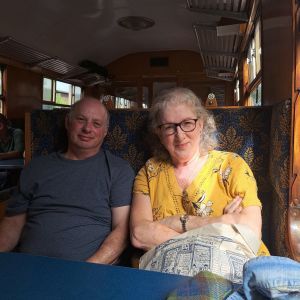 All aboard the Holt to Sheringhma steam train – with our host Rory
All aboard the Holt to Sheringhma steam train – with our host Rory
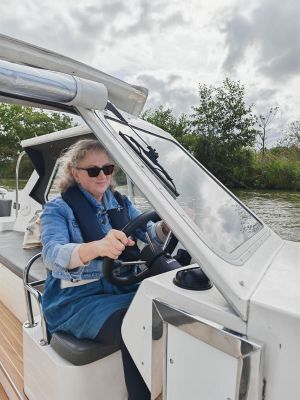 My first time driving a boat on the Norfolk Broads
My first time driving a boat on the Norfolk BroadsReturning rested and energised (once I’d recovered from the long drive home, anyway), I’ve been trying to catch up with the launch PR for my latest cosy mystery novel, Death at the Village Christmas Fair, which wa launched a couple of days before we left for Norfolk. Strange as it may seem, publishers like to launch Christmassy books in the summer, to give stockists plenty of time to order them in for the Christmas shopping season. To my surprise, it seems that readers really like reading such books in high summer, because I’ve already gained 99 reviews on Amazon, (I’m watching like a hawk for the 100th – these psychological milestones matter!) with a 4’6* average, and it’s selling really well!
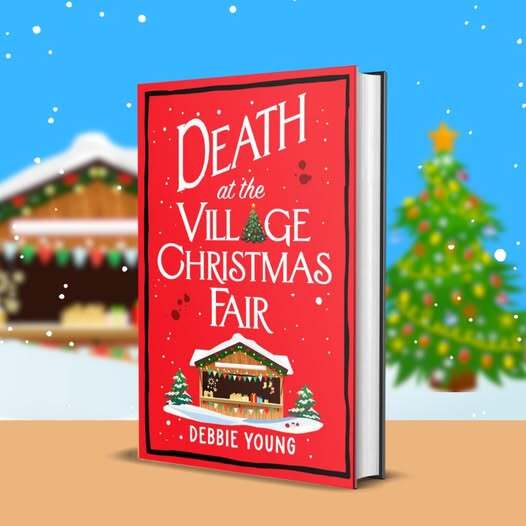 Out now!
Out now! Meanwhile I’m gearing up for the Hawkesbury Village Show this coming Saturday – the traditional horticultural show that inspired my very first novel, Best Murder in Show, all those years ago!
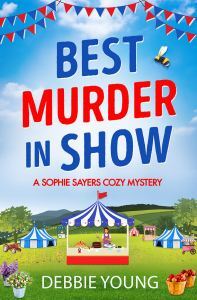 My first ever novel was inspired by the Hawkesbury Show
My first ever novel was inspired by the Hawkesbury ShowIf you happen to be within easy reach of Hawkesbury Upton, do come along to join me at Hawkesbury Show on Saturday 30th August, when I’ll be manning the Hawkesbury Upton Literature Festival‘s stand, promoting the next HULF event on Saturday 27th September – a fun day of talks, discussions and readings with 12 guest speakers, on the theme of “Strength of Character”. This event will mark the 10th birthday of the village literary festival that I founded ten years ago.
 Just some of the many books that will be discussed at our 10th Birthday Special event on 27th September
Just some of the many books that will be discussed at our 10th Birthday Special event on 27th SeptemberAlso on the stand will be fellow authors Lucienne Boyce, Frances Evesham, Sarah Sian Chave, Betty Salthouse, Jack Chandler and Stefania Hartley – all of whom will also be speaking at HULF in September! More details of the September event and tickets are available via Eventbrite here: https://HULF10.eventbrite.co.uk.
Then on the Sunday morning, in the Show marquee, by then empty of all its exhibits, I’ll be speaking at our traditional Songs of Praise service, in which six hymns are chosen by members of the parish – only in this case, they will be from our fellow parishes within the Badminton Benefice, as it’s the fifth Sunday of the month, when all the parishes, who share the same vicar, the Rev Richard Thomson, also share a single service.

 A Little Learning: The First Volume of an Autobiography by Evelyn Waugh
A Little Learning: The First Volume of an Autobiography by Evelyn Waugh
Evelyn Waugh is one of my favourite authors, so I am keen to read everything he has written, and only discovered this recently. particularly interesting to see the influence of his own formative years over his novels Decline and Fall and Brideshead Revisited, and always a joy to read his measured prose.
Having finished reading this book while I was in Norfolk, I downloaded the audiobook of Brideshead Revisited, narrated by Jeremy Irons, for the long drive home. The perfect travelling companion!
But now I must dash – I’m off to ring the bells at our parish church of St Mary’s Hawkesbury. No, I don’t know how I fit it all in either…



